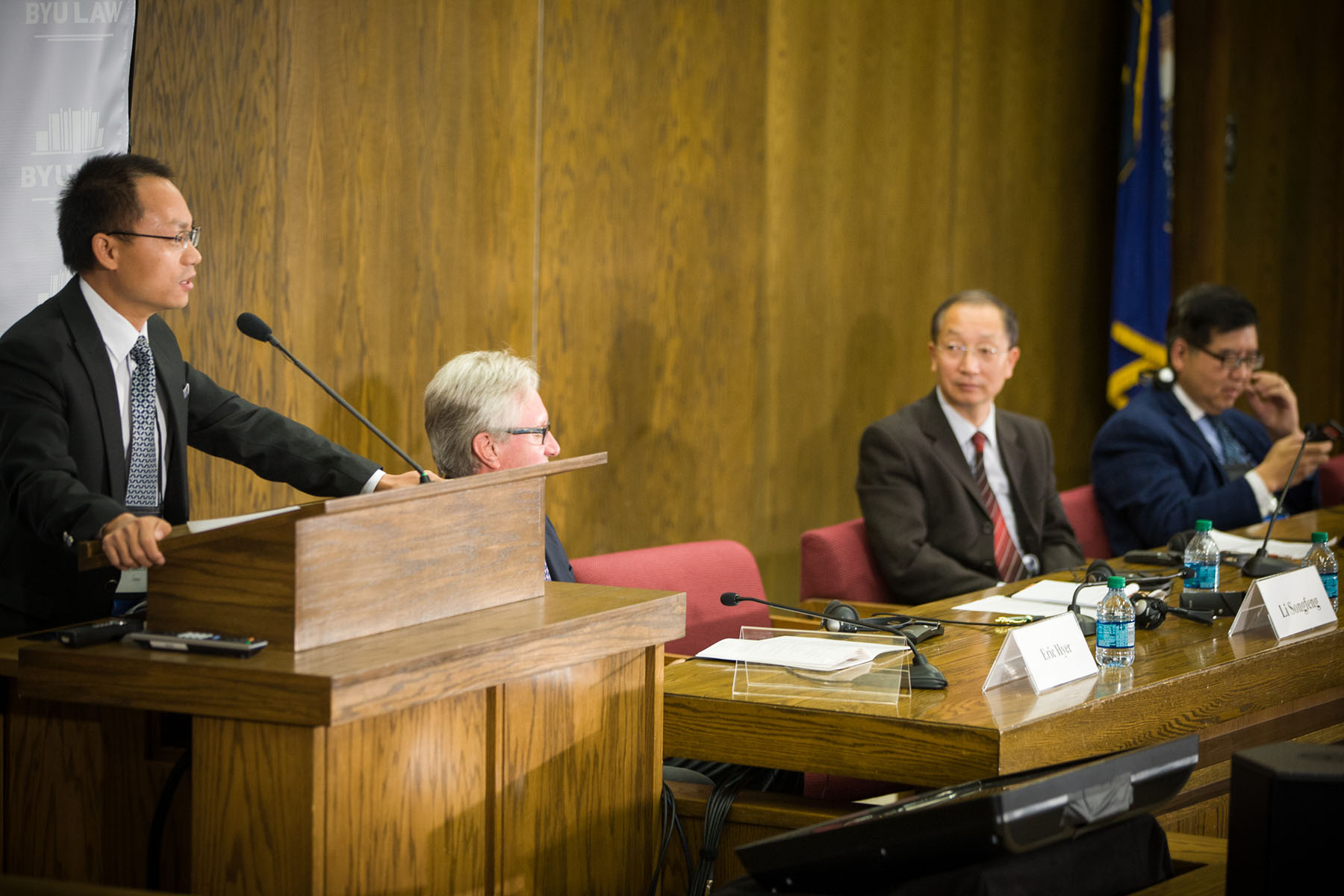





Photo credit: Matt Imbler
by Alexander Alton
The morning schedule on Tuesday, October 4, 2016 included a number of country updates. Eric Hyer, Associate Professor of Political Science and Coordinator for Asian Studies at Brigham Young University, moderated the session focused on China. The three presenters were Xu Yihua, a professor and the director of the Department of International Politics at Fudan University in Shanghai; Chen Jianming, a professor in the Institute of Religious Studies at Sichuan University; and Li Songfeng, a junior professor of law at the University of Politics and Law in Beijing.
Professor Jianming explained how communist ideology and atheism effect religious liberty in China. He suggested that, in China, an atheist philosophy that completely rejects the possibility of allowing others to have religious beliefs is a complete obstacle to religious liberty. He also suggested that extreme pluralism, Wolf Philosophy as he calls, is also problematic because the different religions act like wolves, each wanting to be king of the forest and devouring the others. Professor Jianming suggested that the way forward in China is Panda Philosophy—this is Marxist atheism that does not completely deny the existence of God; nevertheless, it doesn’t believe in anything that is not proven. Panda Philosophy is pragmatic materialism that suggests that human beings should act within the laws of the world. According to Professor Jianming, Panda Philosophy is desirable in China because it allows for the harmonious coexistence between atheism and theism.
Professor Songfeng spoke about religious freedom within the Chinese Constitution. He explained how, because of China’s history of highly publicized social and governmental hostilities toward religion, many people in the world do not believe that China allows for any type of religious freedom. However, Article 36 of the Chinese Constitution specifically provides for religious freedom. Professor Songfeng explained some of the reasons behind the disconnect between the Chinese Constitution and the actual life of Chinese citizens, including the following: the Chinese government interprets freedom of religion as freedom from religion; the Chinese government does not fully support the law; the Chinese government does not provide adequate channels for citizens to report crimes and seek help; and the proposition of freedom of religion is a lower priority to the government than the notion of protecting the rights of the communist party. Nevertheless, the Chinese government has revised the its constitution four times since it was ratified in 1982, and Professor Songfeng believes that this is evidence that the government is committed to finding a way to make the idea of religious liberty function more satisfactorily in China.
